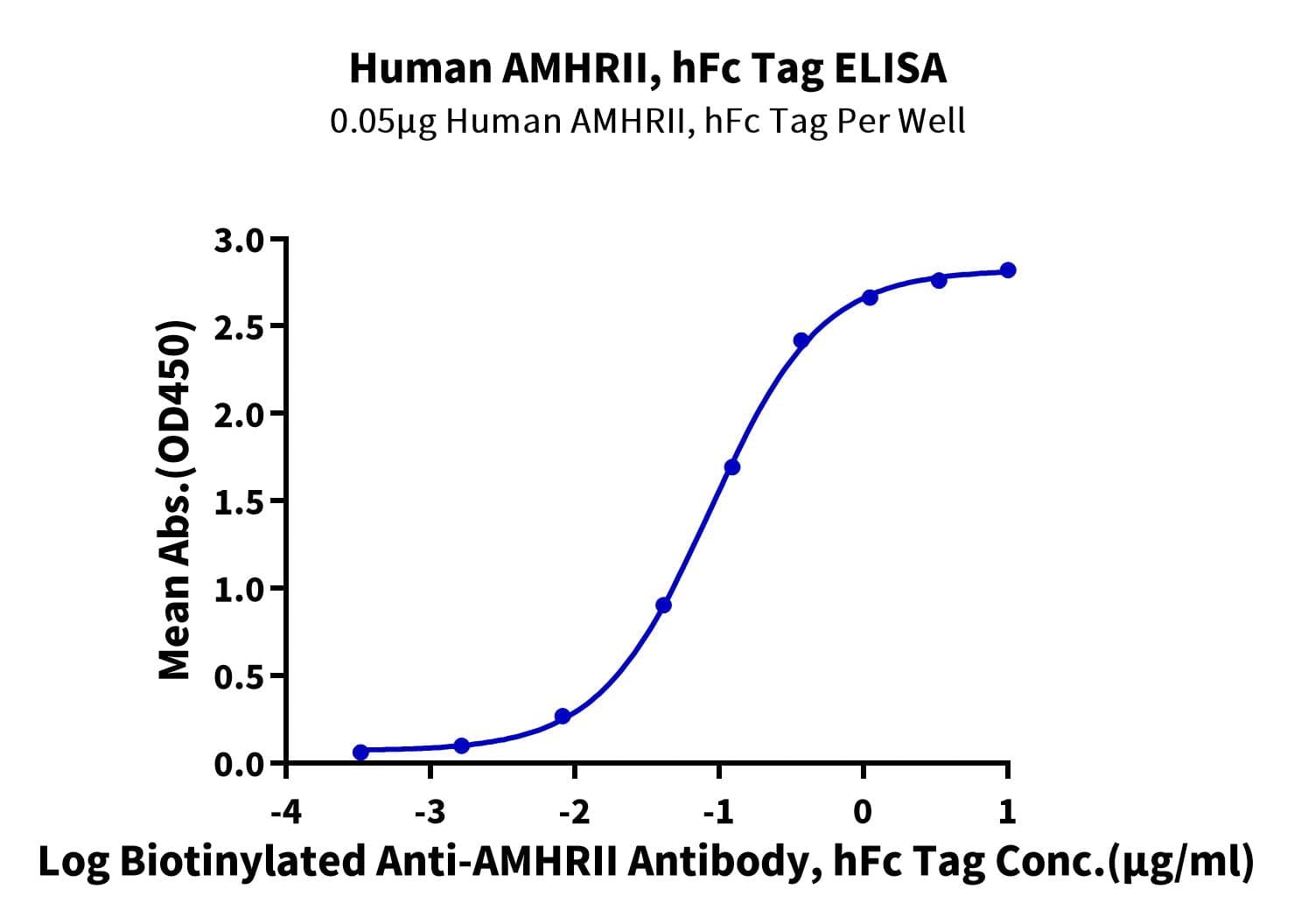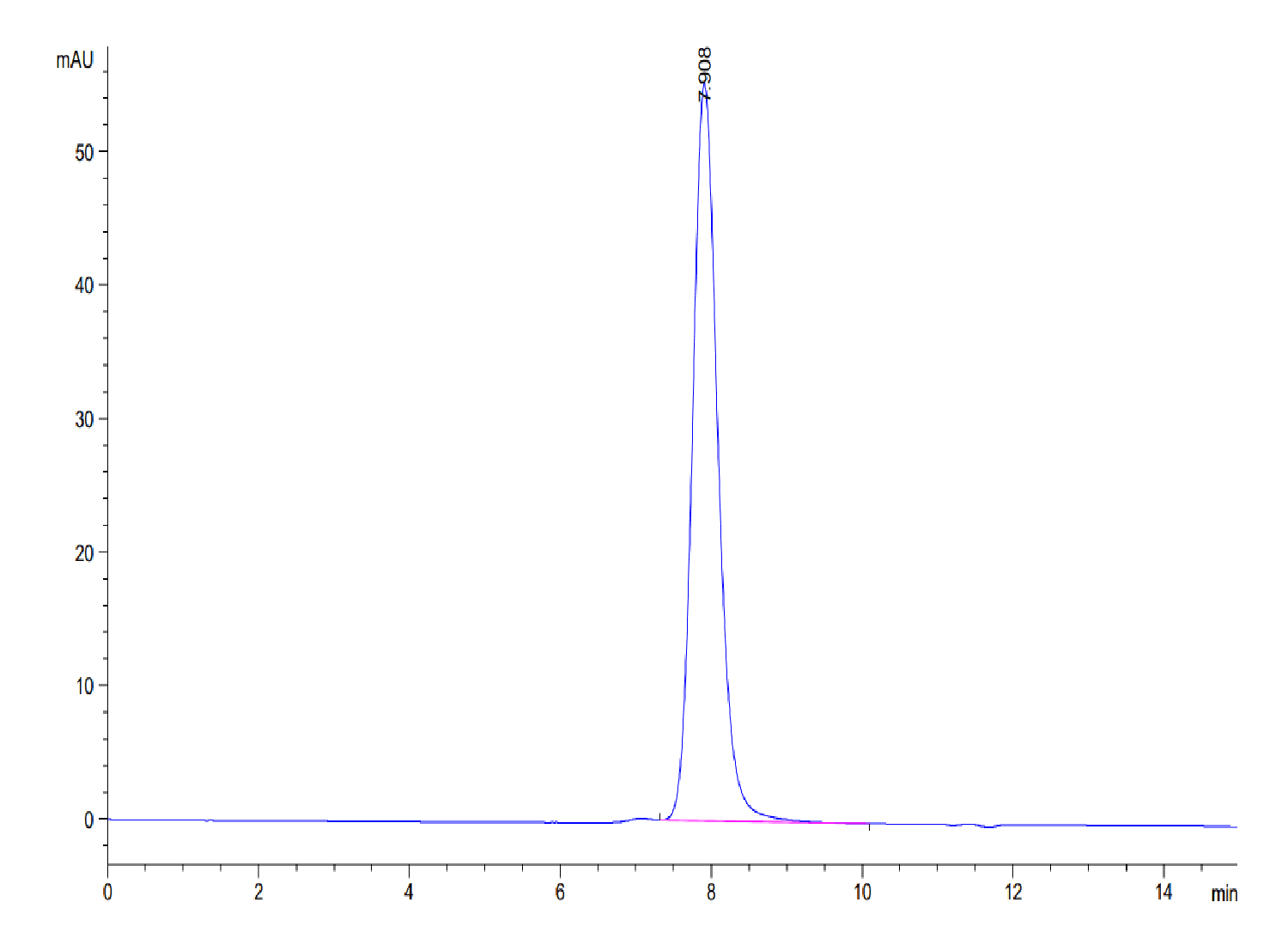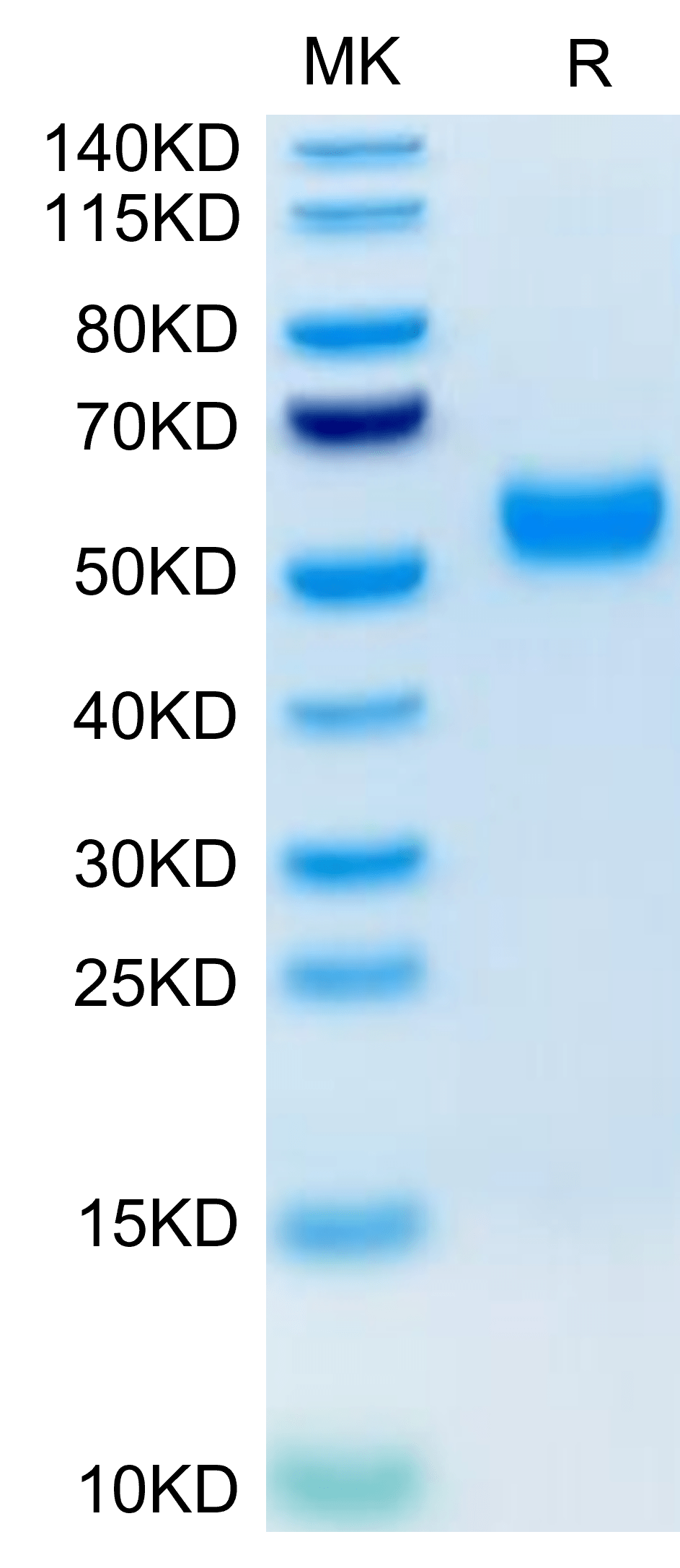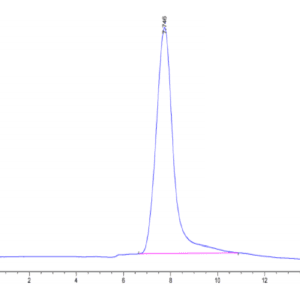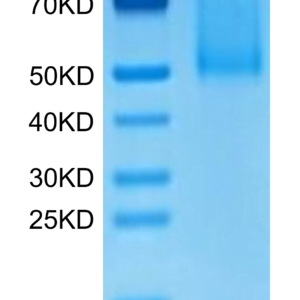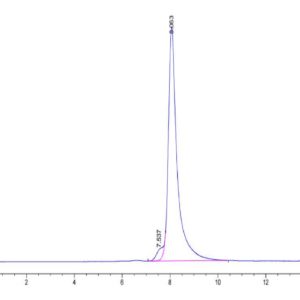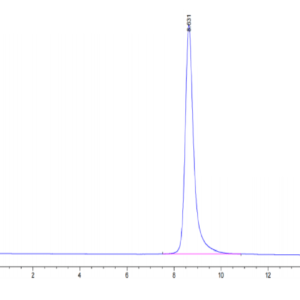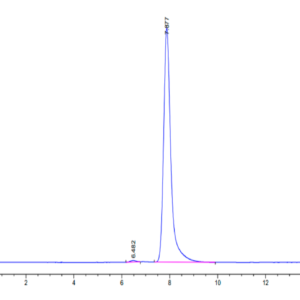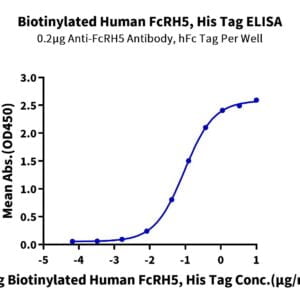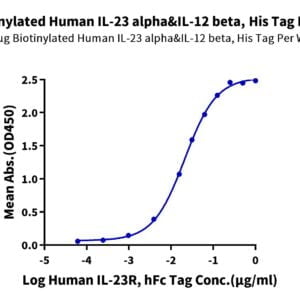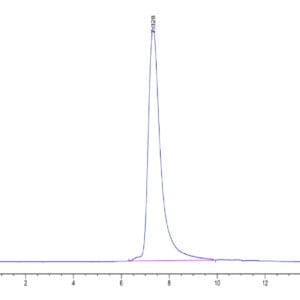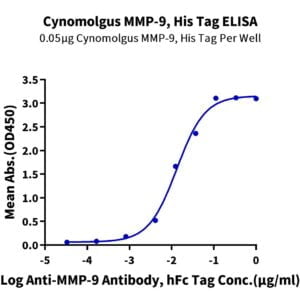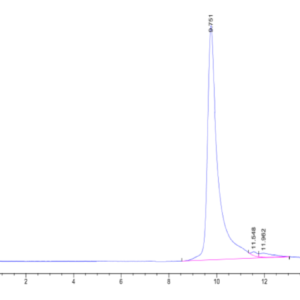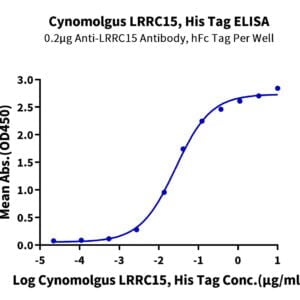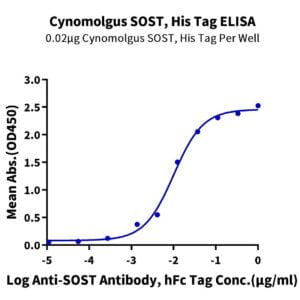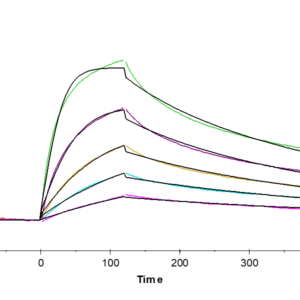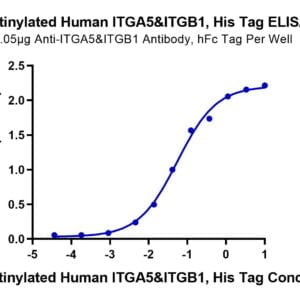| Weight | 1 lbs |
|---|---|
| Dimensions | 9 × 5 × 2 in |
| accession | Q16671 |
| express system | HEK293 |
| product tag | C-hFc |
| purity | > 95% as determined by Tris-Bis PAGE;> 95% as determined by HPLC |
| background | The aim of the current study was to explore whether anti-Müllerian hormone receptor II (AMHRII) genetic variants influence the hormonal profile and the ovarian response to standard gonadotropin stimulation of women undergoing medically assisted reproduction. Three hundred in vitro fertilization or intracytoplasmic sperm injection patients constituted the study population, while 300 women with at least one spontaneous pregnancy participated as controls. |
| molecular weight | The protein has a predicted MW of 40.2 kDa. Due to glycosylation, the protein migrates to 50-65 kDa based on Tris-Bis PAGE result. |
| available size | 100 µg, 500 µg |
| endotoxin | Less than 1EU per μg by the LAL method. |
Human AMHRII Protein 3939
$315.00 – $1,050.00
Summary
- Expression: HEK293
- Functional: Yes (ELISA)
- Amino Acid Range: Pro18-Ser144
Human AMHRII Protein 3939
| protein |
|---|
| Size and concentration 100, 500µg and lyophilized |
| Form Lyophilized |
| Storage Instructions Valid for 12 months from date of receipt when stored at -80°C. Recommend to aliquot the protein into smaller quantities for optimal storage. Please minimize freeze-thaw cycles. |
| Storage buffer Shipped at ambient temperature. |
| Purity > 95% as determined by Tris-Bis PAGE |
| target relevance |
|---|
| The aim of the current study was to explore whether anti-Müllerian hormone receptor II (AMHRII) genetic variants influence the hormonal profile and the ovarian response to standard gonadotropin stimulation of women undergoing medically assisted reproduction. Three hundred in vitro fertilization or intracytoplasmic sperm injection patients constituted the study population, while 300 women with at least one spontaneous pregnancy participated as controls. |
| Protein names Anti-Muellerian hormone type-2 receptor (EC 2.7.11.30) (Anti-Muellerian hormone type II receptor) (AMH type II receptor) (MIS type II receptor) (MISRII) (MRII) |
| Protein family Protein kinase superfamily, TKL Ser/Thr protein kinase family, TGFB receptor subfam |
| Mass 62750Da |
| Function On ligand binding, forms a receptor complex consisting of two type II and two type I transmembrane serine/threonine kinases. Type II receptors phosphorylate and activate type I receptors which autophosphorylate, then bind and activate SMAD transcriptional regulators. Receptor for anti-Muellerian hormone. |
| Catalytic activity CATALYTIC ACTIVITY: Reaction=ATP + L-threonyl-[receptor-protein] = ADP + H(+) + O-phospho-L-threonyl-[receptor-protein]; Xref=Rhea:RHEA:44880, Rhea:RHEA-COMP:11024, Rhea:RHEA-COMP:11025, ChEBI:CHEBI:15378, ChEBI:CHEBI:30013, ChEBI:CHEBI:30616, ChEBI:CHEBI:61977, ChEBI:CHEBI:456216; EC=2.7.11.30; CATALYTIC ACTIVITY: Reaction=ATP + L-seryl-[receptor-protein] = ADP + H(+) + O-phospho-L-seryl-[receptor-protein]; Xref=Rhea:RHEA:18673, Rhea:RHEA-COMP:11022, Rhea:RHEA-COMP:11023, ChEBI:CHEBI:15378, ChEBI:CHEBI:29999, ChEBI:CHEBI:30616, ChEBI:CHEBI:83421, ChEBI:CHEBI:456216; EC=2.7.11.30; |
| Subellular location Membrane; Single-pass type I membrane protein. |
| Structure Interacts with type I receptor ACVR1. {ECO:0000269|PubMed:17911401}. |
| Target Relevance information above includes information from UniProt accession: Q16671 |
| The UniProt Consortium |
Data
Publications
Publications
| pmid | title | authors | citation |
|---|---|---|---|
| We haven't added any publications to our database yet. | |||
Protocols
| relevant to this product |
|---|
Documents
| # | ||
|---|---|---|
| Please enter your product and batch number here to retrieve product datasheet, SDS, and QC information. | ||
